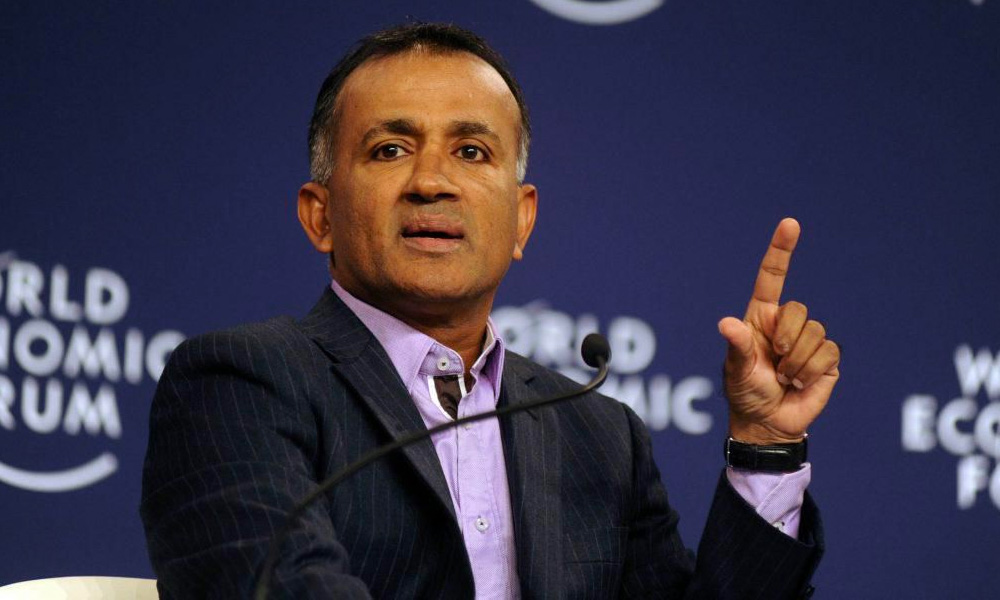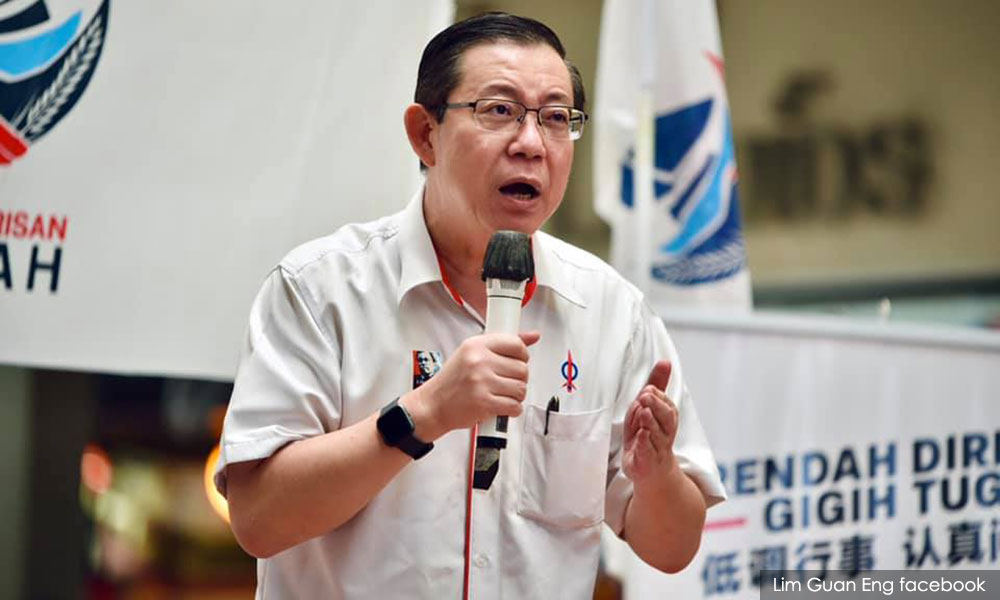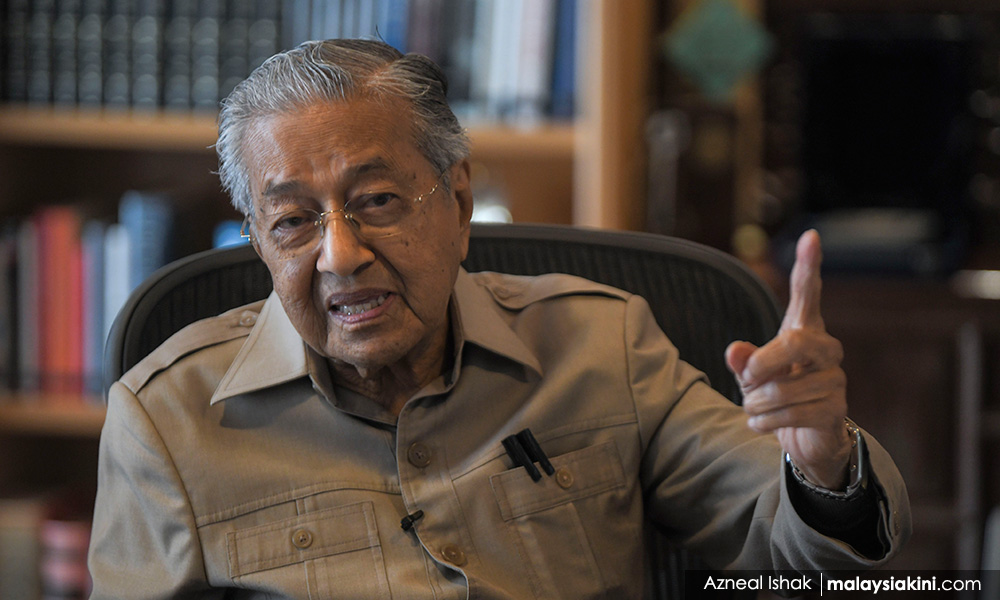“Any real change implies the breakup of the world as one has always known it, the loss of all that gave one an identity, the end of safety.”
- James Baldwin
In a recent interview with Malaysiakini, Chandran Nair said that in order to dismantle institutional racism, the non-Malays “... do not need to believe that the only way to dismantle it is through the political system as that is a sham and the events of the last two years have shown us that racism is what runs through the corridors of our entire political system.”
What Chandran advocates are good old fashioned liberal civil action and disobedience as a kind of grassroots alternative to mainstream politics in this country.
While I think that people advocating for change on personal and localised levels are always constructive, the reality is that institutional change can only come about through the political process.
I think many folks would be surprised as to how many personal and professional testimonials about institutional racism exist in the private sector if we really had a race reckoning discussion in this country.
When partisans argue that this is an apartheid system, the reality is that as Malaysians we voted in successive BN governments for decades. If Anwar Ibrahim was not ejected from the Umno paradise, we would not even have Pakatan Harapan.

Keep in mind, the rakyat – Malays and non-Malays – voted in governments that not only dismantled left-wing politics in this country – which had a dominant Malay voice – but also carried out Arabisation programmes which are now so firmly entrenched that I doubt even progressive Malay leadership can dislodge.
The non-Malay dilemma is the reality that non-Malays in this country do not have a political outlet to dismantle the racist system in place.
The non-Malay dilemma is the realisation that political parties, which claim to be multiracial, have no genuine intention to dismantle the system in place, because to do so would mean destabilising their political power.
The non-Malay dilemma is also realising that egalitarian ideas, which benefit all, are classified as “racial” (non-Malay) ideas meant to disrupt the ketuanan system, which translates to political sanction from the political system, which includes multiracial political parties.
Non-Malay political parties' propaganda is based on the falsehood that they are independent operators. They are not. They are in reality proxies for Malay power structures, with varying degrees of public and private influence within Malay hegemons. To believe otherwise is the basis of the non-Malay dilemma.
Nowhere is this dilemma more clear when the old maverick publicly castrated DAP secretary-general Lim Guan Eng, in an interview he did with Malaysiakini. In it, we discovered that Lim had no real power and everything went through the old maverick.
We discovered that the “Chinese” were given less than the “Malays” and this was part of the scheme not to spook the Malays. That a group of “Malay” intellectuals had devised some sort of entitlement programme to help the Malays and Lim and the DAP were fine with this.

The kicker is this. Lim knew that “Malay states” were not in Harapan's control but were in financial trouble, so he proposed a one-off payment amounting to hundreds of millions ringgit.
Honestly, the Malay establishment never had it so good. Here you demonise a Chinese politician for decades and he still proposes funds for your ailing state.
In 2012, while debating Chua Soi Lek, Lim claimed: “We should not bow to fate and have the right to equality. We should not kneel and beg. We should be brave enough to stand and ask for it.”
But non-Malay political operatives cannot really do that, can they? Sure they can do this when arguing against other non-Malay power structures, but the tone changes when they are part of a supposedly power-sharing coalition.
Not only have they got to worry about their own base, but they also have to worry about not spooking the Malays. How exactly is one going to dismantle institutional racism when you have to enable the system in order to remain in power?
Non-Malay political operatives are complicit in furthering racial and religious supremacy in the power-sharing formula that is necessary for non-Malays to participate in the political process.
Indeed the "Bangsa Malaysia" propaganda, which is aimed at non-Malay communities, acts as some sort of narcotising agent for non-Malay discontent, while Malays, even in multiracial coalitions, are free, nay, encouraged to display their Malayness either in defence of non-Malay political operatives or as some sort of bona fide against attacks from the Malay far-right.
Hence racial strategies of the non-Malays are complicit in maintaining divisive politics because the realpolitik of Malaysia is that if we – non-Malays – do not employ these strategies, there would be no line in the sand when it comes to racial and religious supremacy.
It also means that we can never really have an honest dialogue about race because we are part of the problem.

And of course, the decades-long abuses of the electoral system do not help. I mean here is the former prime minister explaining the need for a Malay-based party like Bersatu in winning Putrajaya:
“Dr Mahathir Mohamad noted that the opposition coalition's multiracial approach had not been successful in rural Malay constituencies, which is given disproportionate weightage in the general election. The former premier pointed out that this was seen when the opposition coalition won 52 percent of the popular vote in the last general election (2013) but still failed to capture Putrajaya.”
So not only are non-Malays pinning their hopes on non-Malay political operatives who are fighting with one hand tied behind their backs, they are betting on non-Malay political operatives who are fighting with one hand tied behind their backs in a rigged game.
And not only is it a sham, but we also have folks making excuses for non-Malay political operatives who fail to support the egalitarian agendas they campaign on. We have toxic online discourse, which degenerates into personality politics at the expense of policy.
Does real change entail holding political operatives accountable? Or do we (non-Malays) ignore this reality and take comfort in the distractions and vent online?
The idea that complacency in middle-class non-Malays contributed to the system in place is the more interesting part for me of Chandran’s interview.
I mean getting a slice of the pie and the only way to survive also extends to supporting established political structures which maintain the system, while putting up distractions in the form of personalities like the former prime minister Najib Abdul Razak and the court cluster, for instance.
There will always be distractions from the reform issues, which essentially means that the system endures.
And forget about time. We do not have time. The non-Malays are losing the demographic game. Soon, as my PAS friends like to remind me, all these non-Malay issues will be a thing of the past.
So what do we non-Malays do? Do we disengage from the system or carry on engaging, knowing the system for what it is and that real change is not in the cards?
A dilemma by definition is a choice between two undesirable alternatives. - Mkini
S THAYAPARAN is Commander (Rtd) of the Royal Malaysian Navy. Fīat jūstitia ruat cælum - "Let justice be done though the heavens fall."
The views expressed here are those of the author/contributor and do not necessarily represent the views of MMKtT.




No comments:
Post a Comment
Note: Only a member of this blog may post a comment.